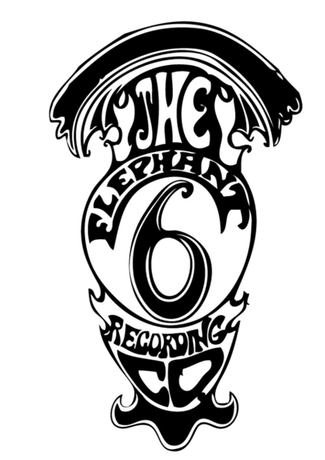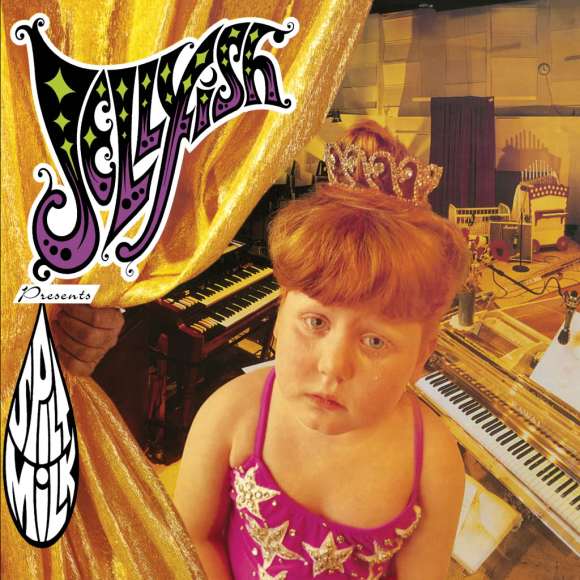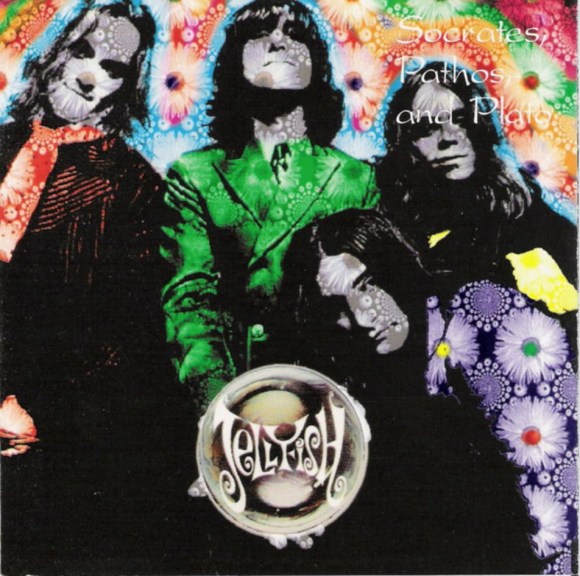It was the summer of 2001 when I discovered Guided By Voices. I had just graduated high school and was working as a cashier at a drugstore. The job was pretty lousy, with even lousier piped-in music to add insult to injury. Anyway, the one perk was the magazine rack. Every day I’d take my break in the employee lounge and read a magazine. At the time REVOLVER magazine was a real rock magazine and not the rag it’s unfortunately become–anyway I was leafing through an issue with REVOLVER that had a feature on a guy named Robert Pollard. What I discovered from reading the article was that Pollard was some kind of prolific songwriter and that his indie-band, Guided By Voices, was about to release it’s second “mainstream” album on a major label. It was a pretty standard article and it didn’t do much in the way of make me curious about Pollard or his band, until the very end. At the end of the article, the author compared Guided By Voices sound as “The Who performing an arena-shaking rendition of The Beatles’ Nowhere Man.”
As a dyed in the wool Beatlemaniac, I was intrigued to say the least.
That comparison launched a love affair with GBV and Pollard that goes beyond mere fandom. Robert Pollard is not the greatest songwriter of all time. Guided By Voices is not the greatest band of all time. Don’t get me wrong, I deeply love Guided By Voices, but it’s not just the music that makes them so special. The band is a symbol for what it means to be an artist–I mean that in the broadest sense of the word, not just a musician but as a general creative force. That the music is awesome only cemented Pollard’s position as my personal rock hero. But I’m getting ahead of myself. In order to talk about all of this you need to know a little bit about Pollard.

Calisthenics are an important part of the Guided By Voices experience.
Robert Pollard was a 4th grade school teacher in Dayton, Ohio. He was on track for a pretty ordinary, average life but something was missing. If you’re an artist and aren’t creating it causes all sorts of problems. Pollard needed an outlet so he started jamming with friends on the weekend. Pollard also liked to write very (very) short little songs. Maybe “song” isn’t the right word, these were almost pieces of songs, snippets. They were catchy as hell. Using very primitive home recording gear (like a boombox with a cassette deck and microphone) Guided By Voices was formed and Pollard starting making albums. The band became critical darlings in the mid-1990s and Pollard was able to quit his job as a teacher and became a full-time rock star. The band went mainstream for two albums and were then promptly dropped when the band didn’t catch fire and sell millions of albums.
Now, that story probably makes Pollard a hero in the eyes of many, but it was what he did after being dropped that makes him MY hero: he kept making music. Pollard made a LOT of music. So much music that he started other bands, a solo career, and recorded GBV albums. I know a lot of people say they’re prolific, but Robert Pollard is the real deal. The closest mainstream person I think of who seems to be like Pollard is Jack White. But whereas Jack White puts out an album or so every year, Pollard usually releases 3 to 4 albums a year (sometimes more). He also designs his album’s artwork and writes poetry. Being prolific makes him special, but he’s my hero because he never gives up. If we all turned out backs on him I know he’d keep writing and recording albums because he’s an artist and that’s all he knows. He could have done what most people do and give up, push aside childish things like making art, but he didn’t. As someone who wishes he was a writer and not a office drone, Robert Pollard is my hero.
But the music is good. It’s really damn good.
Just like the REVOLVER writer pointed out years later, Guided By Voices sound a bit like The Who and other British Invasion-era rock bands from the 1960’s. Pollard, born and raised in Ohio, even sings with a bit of a British accent. However, GBV wasn’t an ordinary rock band playing ordinary rock songs. Pollard’s songwriting generally consists of taking his little song snippets and fusing them together. A lot of it is very poetic and very catchy, some of it is just bizarre. Pollard’s songwriting leads GBV to the precipice of art-rock and progressive (“prog”) rock. In fact, I would say Guided By Voices often sound like The Who meets Peter Gabriel-era Genesis on occasion. The songs are pretty much 89% hook and chorus. A major criticism of Pollard and GBV is that the songs feel undercooked or too much like a snippet. An argument could be made that Pollard and GBV never found massive success because he wrote 20,000 two minute songs instead of 14 killer 3-4 minute polished gems. I can’t argue with this criticism completely, but I can’t dismiss Pollard’s genius either. He’s written so many amazing songs that might not exist if he didn’t throw everything at the wall and then run away.
The aesthetic, in regards to recording, can also be criticized. Back in the 1990’s people didn’t have a lot of options when it came to recording, being “lo-fi” was less a conscious artistic choice and more of a necessity. Many long time GBV fans became hyper-critical when the band joined a major label and recorded in a proper studio. I can listen to both era’s of GBV and appreciate it but I can definitely recommend that newbies start with the newer albums and work back to those prehistorically recorded classics. Since being dropped from the major label TVT, Guided By Voices has adopted a nice balance of lo- and hi-fi sound. As a true lover of the band I’m perfectly fine with this, but it’s still annoyingly cool to bitch about GBV not being homemade.

Robert Pollard knows that hydration is a key ingredient to successful rocking.
I keep talking about Robert Pollard because he really is Guided By Voices. I read once that Pollard estimates over 100 different people have been in the band at one point or another. I’m not sure how accurate that figure is but it seems accurate enough. For a while guitarist Doug Gillard (from Cobra Verde) was an integral part of the band, but that partnership ended in 2004 when Pollard inexplicably shut GBV down. He claimed that it was also his plan to stop recording when the band made a “perfect” album. A lot can be said of 2004’s HALF SMILES OF THE DECOMPOSED but a perfect record it was not–and Pollard must have realized this because in 2010 he reformed the band. Pollard didn’t retire during the brief period when Guided By Voices was dormant, he recorded a shit ton of solo albums. I am a pretty big fan and I can honestly say that I have not heard (or heard of) about 45% of Pollard’s output. There are simply too many songs. Too many records. I haven’t even heard all of the Guided By Voices early stuff (most of which I’ve heard is a bit unlistenable).

You pretty much need to buy this. Right. Now. Don’t make Bob cast a spell on you.
In 2003 Matador Records did newbies a huge favor by releasing HUMAN AMUSEMENTS AT HOURLY RATES: THE BEST OF GUIDED BY VOICES. They also released, at the same time, a pretty hearty boxset HARDCORE UFOS. I guess the best place to start is the greatest hits compilation. I don’t usually recommend that to people, but it’s the best way to dip your toes in the world of Robert Pollard. From there I recommend you check out MAG EARWHIG! and UNIVERSAL TRUTHS AND CYCLES. The former being the last album before going to a major label and the latter being the first one the band released after being dropped. The band’s major label albums are not terrible, they’re just a not the best place for newbies to start. You have, in fact, probably already heard one Guided By Voices song and not even realized it: “Hold On Hope.” The song comes from the Ric Ocasek (the weird dude from The Cars) produced album DO THE COLLAPSE. The story goes Pollard did not want to do “Hold On Hope” but because he wanted to play ball with the record company (and get on the radio) he did it. It’s not a terrible song, it’s a nice ballad. Anyway, it’s been featured in a bunch of indie-minded TV shows and films (like SCRUBS). It’s the kind of song a lot of bands would kill to have and it’s nowhere near as good as 99% of GBV’s other songs.
Guided By Voices is a band I’m seriously passionate about. On one hand the catchy, weird-ass songs delight me on a pure visceral-level but as an artist, I find I love and respect Pollard for chasing his dream and pursuing his own unique vision of song and song-writing.

















